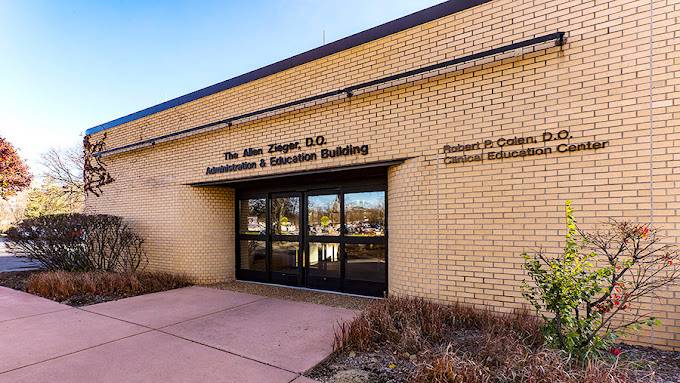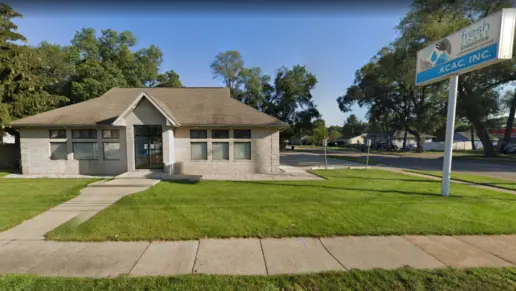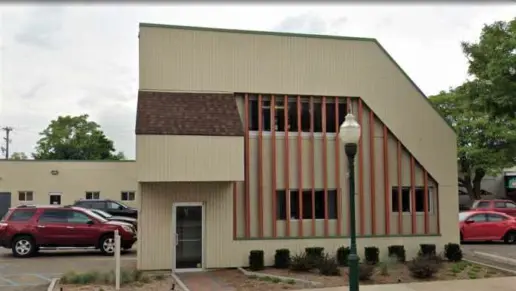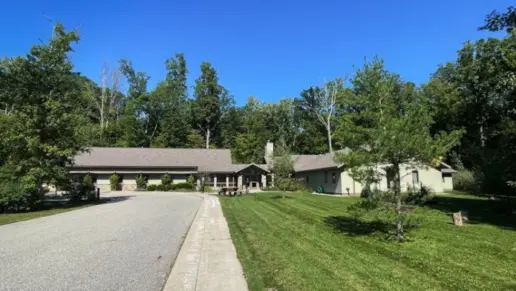About New Oakland Family Centers
New Oakland Family Centers in Farmington Hills, Michigan, offers help and support 24 hours a day, every day of the year. They have family-oriented, comprehensive treatment programs with various levels of care. Situated in an urban locale not too far from Detroit, New Oakland does their best to provide the most effective evidence-based therapy and support to meet each youth’s needs. Partial hospitalization program (PHP), intensive outpatient (IOP), day programs, 24-hour crisis stabilization, ADHD, and neurodiverse assessments and mental health outpatient care are provided.
There are partial hospitalization programs available for children, adolescents, and adults who need ongoing support greater than outpatient programs can offer. Age appropriate therapy, both individual and group, are offered. There are medication, psychiatric and educational reviews to help assess and provide the best care for each individual and their situation. Person-centered care is the central mission and goal of all New Oakland programs.
PHP start as early as age three. Children, youth, and adults are all treated among their peer age groups in separate programs designed for each generation. The average length of the PHP program is seven to ten days and is approximately six hours each day.
Partial hospitalization is also available for those struggling specifically with eating disorder. Though these services are in Bloomfield Hills, separate from the other PHP programs.
Intensive Outpatient Programs are available for youth and children. There is also an IOP for adults. These programs involve treatment for behavioral, mental health and emotional problems or have a secondary diagnosis related to addiction. Individuals attend treatment approximately three hours three times a week.
If someone requires more support than an intensive outpatient program but doesn’t require the daily support of a partial hospitalization program, there’s a day program. It is available for ages three and up, including adults. Day treatment includes treatment for three hours a day four days each week and lasts for as long as an individual needs.
Traditional outpatient services are available by appointment from 8am to 5 pm or on a walk in basis from 8 am to 3 pm on weekdays. Crisis services and emergency mental health assessments are available 24 hours a day 7 days a week.
Most major health insurance plans are accepted by New Oakland. It’s important to connect with your personal health insurance provider to verify what coverage you have and whether you will be responsible for any of the expenses out-of-pocket.
Facility Overview
Latest Reviews
Rehab Score
Gallery

Location
Other Forms of Payment
Medicaid is a state based program that helps lower-income individuals and families pay for healthcare. Medicaid covers addiction treatment so those enrolled can use their coverage to pay for rehab. When a program accepts Medicaid the client often pays very little or nothing out of their own pocket.
Private insurance refers to any kind of healthcare coverage that isn't from the state or federal government. This includes individual and family plans offered by an employer or purchased from the Insurance Marketplace. Every plan will have different requirements and out of pocket costs so be sure to get the full details before you start treatment.
Self-pay involves paying for treatment out of your own pocket. You can use savings or credit, get a personal loan, or receive help from family and friends to fund your treatment. If you don't have insurance or your insurance plan doesn't cover a specific program, self-pay can help ensure you still get the care you need.
Medicare is a federal program that provides health insurance for those 65 and older. It also serves people under 65 with chronic and disabling health challenges. To use Medicare for addiction treatment you need to find a program that accepts Medicare and is in network with your plan. Out of pocket costs and preauthorization requirements vary, so always check with your provider.
Military members, veterans, and eligible dependents have access to specific insurance programs that help them get the care they need. TRICARE and VA insurance can help you access low cost or no cost addiction and mental health treatment. Programs that accept military insurance often have targeted treatment focused on the unique challenges military members, veterans, and their families face.
Addiction Treatments
Levels of Care
Treatments
The goal of treatment for alcoholism is abstinence. Those with poor social support, poor motivation, or psychiatric disorders tend to relapse within a few years of treatment. For these people, success is measured by longer periods of abstinence, reduced use of alcohol, better health, and improved social functioning. Recovery and Maintenance are usually based on 12 step programs and AA meetings.
Drug rehab in Michigan provides personalized treatment to help individuals break this cycle and regain control of their lives. Treatment methods are used in various levels of care, including inpatient rehab, partial hospitalization programs, intensive outpatient programs, and standard outpatient treatment.
Many of those suffering from addiction also suffer from mental or emotional illnesses like schizophrenia, bipolar disorder, depression, or anxiety disorders. Rehab and other substance abuse facilities treating those with a dual diagnosis or co-occurring disorder administer psychiatric treatment to address the person's mental health issue in addition to drug and alcohol rehabilitation.
A combined mental health and substance abuse rehab has the staff and resources available to handle individuals with both mental health and substance abuse issues. It can be challenging to determine where a specific symptom stems from (a mental health issue or an issue related to substance abuse), so mental health and substance abuse professionals are helpful in detangling symptoms and keeping treatment on track.
Opioid rehabs specialize in supporting those recovering from opioid addiction. They treat those suffering from addiction to illegal opioids like heroin, as well as prescription drugs like oxycodone. These centers typically combine both physical as well as mental and emotional support to help stop addiction. Physical support often includes medical detox and subsequent medical support (including medication), and mental support includes in-depth therapy to address the underlying causes of addiction.
Programs


Clinical Services
Research clearly demonstrates that recovery is far more successful and sustainable when loved ones like family members participate in rehab and substance abuse treatment. Genetic factors may be at play when it comes to drug and alcohol addiction, as well as mental health issues. Family dynamics often play a critical role in addiction triggers, and if properly educated, family members can be a strong source of support when it comes to rehabilitation.
Group therapy is any therapeutic work that happens in a group (not one-on-one). There are a number of different group therapy modalities, including support groups, experiential therapy, psycho-education, and more. Group therapy involves treatment as well as processing interaction between group members.
In individual therapy, a patient meets one-on-one with a trained psychologist or counselor. Therapy is a pivotal part of effective substance abuse treatment, as it often covers root causes of addiction, including challenges faced by the patient in their social, family, and work/school life.
Trauma therapy addresses traumatic incidents from a client's past that are likely affecting their present-day experience. Trauma is often one of the primary triggers and potential causes of addiction, and can stem from child sexual abuse, domestic violence, having a parent with a mental illness, losing one or both parents at a young age, teenage or adult sexual assault, or any number of other factors. The purpose of trauma therapy is to allow a patient to process trauma and move through and past it, with the help of trained and compassionate mental health professionals.
Amenities
-
Private Setting
Accreditations

The Commission on Accreditation of Rehabilitation Facilities (CARF) is a non-profit organization that specifically accredits rehab organizations. Founded in 1966, CARF's, mission is to help service providers like rehab facilities maintain high standards of care.
CARF Accreditation: Yes
Contact Information
32961 Middlebelt Road
Farmington Hills, MI 48334


